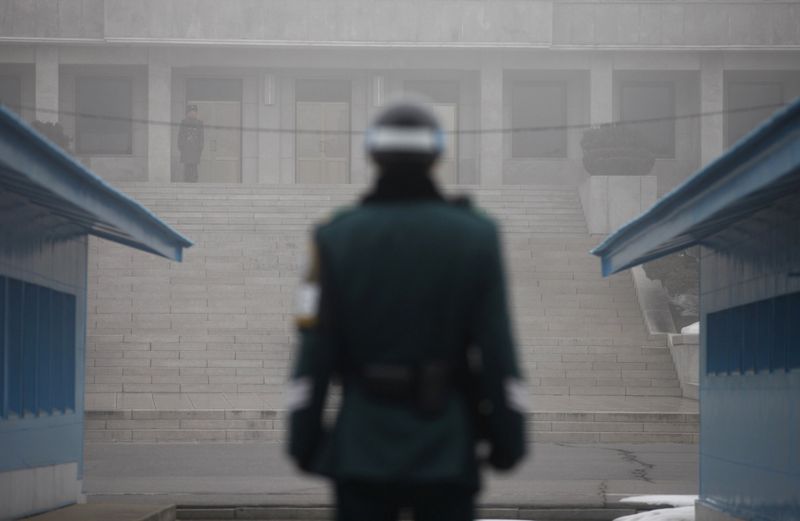Source The GZERO Daily team
Media www.rajawalisiber.com – On Tuesday, a US soldier was snatched by North Korean authorities after he crossed the heavily fortified DMZ border from South Korea in the “truce village” of Panmunjom. We know the soldier, Private 2nd Class Travis King, was facing disciplinary action by the US military after being held in South Korea on assault charges and that he “willfully” crossed the border. What we don’t know is how Kim Jong Un will treat him, or how hard Washington will work to get him back given the bizarre circumstances. The White House said Tuesday that the Defense Department had reached out to its counterparts in Pyongyang, so the incident has – at the very least – offered Washington a rare opportunity to reach out to North Korean officials.
We’ll be watching for more information about this incident in the coming days, but don’t let the headlines distract you from the other big story from the Korean Peninsula. That, in our view, is a US nuclear-armed submarine making a port of call in South Korea for the first time in 42 years.
By deploying the sub in South Korean waters, US President Joe Biden delivers on his pledge to President Yoon Suk Yeol in exchange for Seoul not seeking to acquire homegrown nukes. In theory, this would allow America to nuke North Korea within minutes instead of hours (by launching from Guam) if Kim attacks. But it doesn’t really address South Korean reservations that the US president won’t give the order fast enough.
Still, the closer the weapons are, the better they serve as a deterrent for Pyongyang. And the new sub shows both Kim and Yoon that the US remains fully committed to its nuclear security umbrella for the South.
Hungry countries vs. Russia
Ukrainian and Western leaders aren’t the only ones criticizing Russia’s decision to suspend its participation in the Black Sea Grain Initiative, a deal brokered by the UN and Turkey that allows Ukraine to ship grain across the Black Sea to the rest of the world. On Tuesday, a senior official in Kenya’s foreign ministry tweeted that Russia’s decision to exit the Black Sea Grain Initiative is a “stab on the back” (sic) with rising global food prices, one that “disproportionately impacts countries in the Horn of Africa already impacted by drought.”
That’s not a good sign for a Russian government that’s worked hard in recent months to persuade developing countries that the Kremlin cares more about their well-being than Americans and Europeans do. Russia has insisted that Ukraine’s grain has gone mainly to rich countries, but Ukraine has provided Afghanistan, Ethiopia, Kenya, Somalia, Sudan, and Yemen with 625,000 tons of emergency food supplies over the past year as part of the Black Sea agreement, according to the UN.
Turkey’s President Recep Tayyip Erdogan has said Russia’s Vladimir Putin wants to return to the deal, as Russia did after a brief suspension last November. More criticism from poorer countries might speed up that reversal.
Biden finally invites Bibi, sort of
After months of White House snubs over the policies of his ultra-right-wing government, Israeli Prime Minister Bibi Netanyahu finally got an invitation to the US this week.
The invitation – which pointedly excluded any details on time or place – arrived as Israeli President Isaac Herzog was in Washington looking to ease strained bilateral ties. But it also comes right as Netanyahu faces a fresh wave of protests and strikes over his fast-advancing plans to trim the remit of Israel’s powerful judiciary.
The Biden administration, along with a number of prominent American Jewish groups, has blasted the judicial reforms, which critics say will undermine Israel’s democracy. The White House is also at odds with Netanyahu over his government’s plans to vastly increase settlement construction in the West Bank.
Against that backdrop, Biden’s invitation is welcome news for Bibi, who has faced criticism that his hardline policies risk imperiling ties with Israel’s most important ally.
But while the invitation is a small salve for US-Israel ties, it seems unlikely to calm the volatile situation in Israel itself. Protesters who see themselves in a fight for Israel’s democracy won’t be much moved by a vague invitation from Biden. And Netanyahu has shown little inclination to back down on his plans, despite months of tension with the US already.

